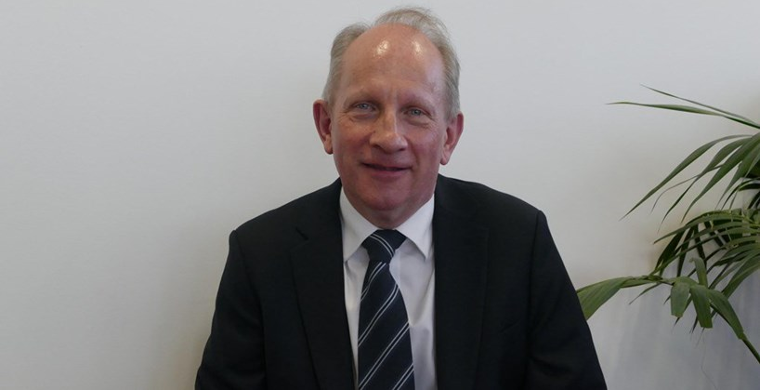CHURCH OF ENGLAND: Put your own house in order, IICSA secretary tells Anglicans
IICSAJohn O'Brien, secretary of the Independent Inquiry into Child Sexual Abuse - Photo
By PAUL HANDLEY
CHURCH TIMES
06 OCTOBER 2020
THE Church needs to take responsibility for its own safeguarding and not look for an independent body to organise it, the secretary of the Independent Inquiry into Child Sexual Abuse (IICSA), John O'Brien, has said.
In an interview on Tuesday morning, Mr O'Brien acknowledged that progress had been made. "But there's still a lot more to do to bring the Church into the modern world, and get it up to modern safeguarding standards."
The Church now had a system of safeguarding professionals in place, he said. IICSA's essential recommendation was to "transfer the authority for opening the investigation, sharing the information with statutory authorities, detailing what steps should be taken at each stage of an investigation, to that professional".
Asked whether, in the present circumstances, he would recommend a victim of abuse go to the church authorities, Mr O'Brien said: "Yes: the minute we start recommending that people don't go and tell people, we start down the slippery slope of people not taking it seriously."
In terms of how they might be treated, however, he said: "My confidence would not be hugely high . . . but the minute you start saying that the organisation which should be responsible for that, and deal with that, should be let off the hook by going elsewhere, you start to take away the importance of driving change.
"We should make all organisations drive for change, so that they become excellent at this, and we don't allow people to slip out of it."
He did not agree that transferring the decision to escalate a case to the diocesan safeguarding adviser (DSA) from the bishop was an example of letting people "slip out of it".
"I wouldn't expect a safeguarding officer to officiate at a wedding, and I don't necessarily think that a bishop [should] be an expert at safeguarding. What I do think is that in every organisation, including the Church, safeguarding ought to be overseen and managed by people who understand what safeguarding is, and know how to implement the right strategies in an organisation to make it excellent at safeguarding.
"That should be no different for the Church than it is for any other organisation. Many other organisations are much more complex in their structure but manage to make this work."
Many survivors have campaigned for safeguarding responsibilities to be removed from the Church altogether, and the Archbishops of Canterbury and York said a fortnight ago, in the context of setting up of a pilot compensation scheme: "The issue of independence is something we have taken a personal lead on and are very committed to" (News, 26 September).
Currently, diocesan safeguarding arrangements are audited by the Social Care Institute for Excellence, and the new survivor-support helpline Safe Spaces, is run by Victim Support.
Mr O'Brien acknowledged these and other recent initiatives taken by the Church (News, 2 October). "The report recognises that progress has been made, but that can lead to complacency. We still point out that there are hundreds of allegations being made of child sexual abuse happening in the Church. . . Safeguarding is still something that's seen as advisory."
He referred to the absence of record-keeping in the Church in Wales. "If you haven't got the records, how do you trace anything back, how do you actually investigate what's happened?"
Mr O'Brien spoke of the need to change the culture in the Church. "Culture, ultimately, is what will make this better, and, in that respect, you'll see from the recommendations that the Church is perhaps slightly further behind the curve."
He was optimistic that people at parish level would see improvements, and that the changes recommended by the panel would be implemented. "As we see further refinements to their safeguarding structure, that is bound to feed down to the dioceses and the local level."
The Church of England currently spends an estimated £20-25 million a year on safeguarding (News, 14 August). Mr O'Brien did not believe that the IICSA recommendations would increase that. DSAs were already in place, he said, and it was a question of giving them the right authority and changing the reporting structures. "We're not proposing wholesale additional cost."
Cost should not be the deciding factor, however. "There has to be the right balance there. . . You shouldn't look at the cost and then decide: 'What can we do for the least amount of money?' You should look at what the right safeguarding structure is and then decide how you pay for it."
END














